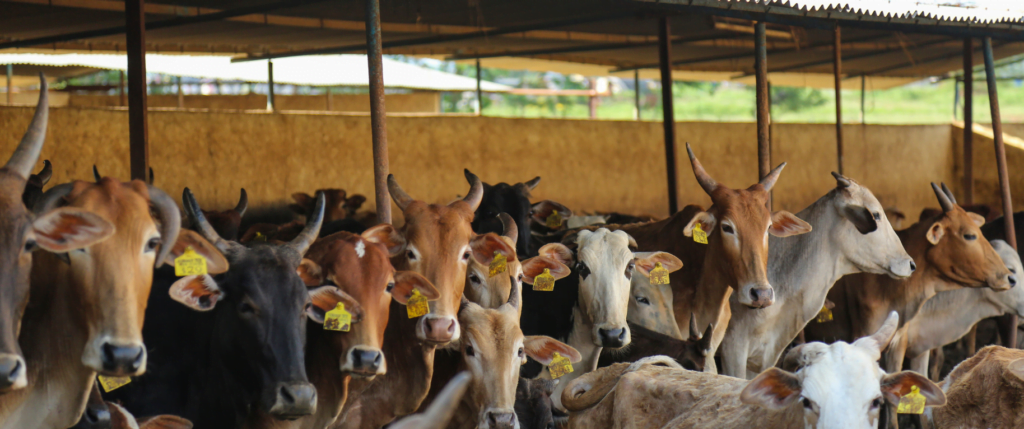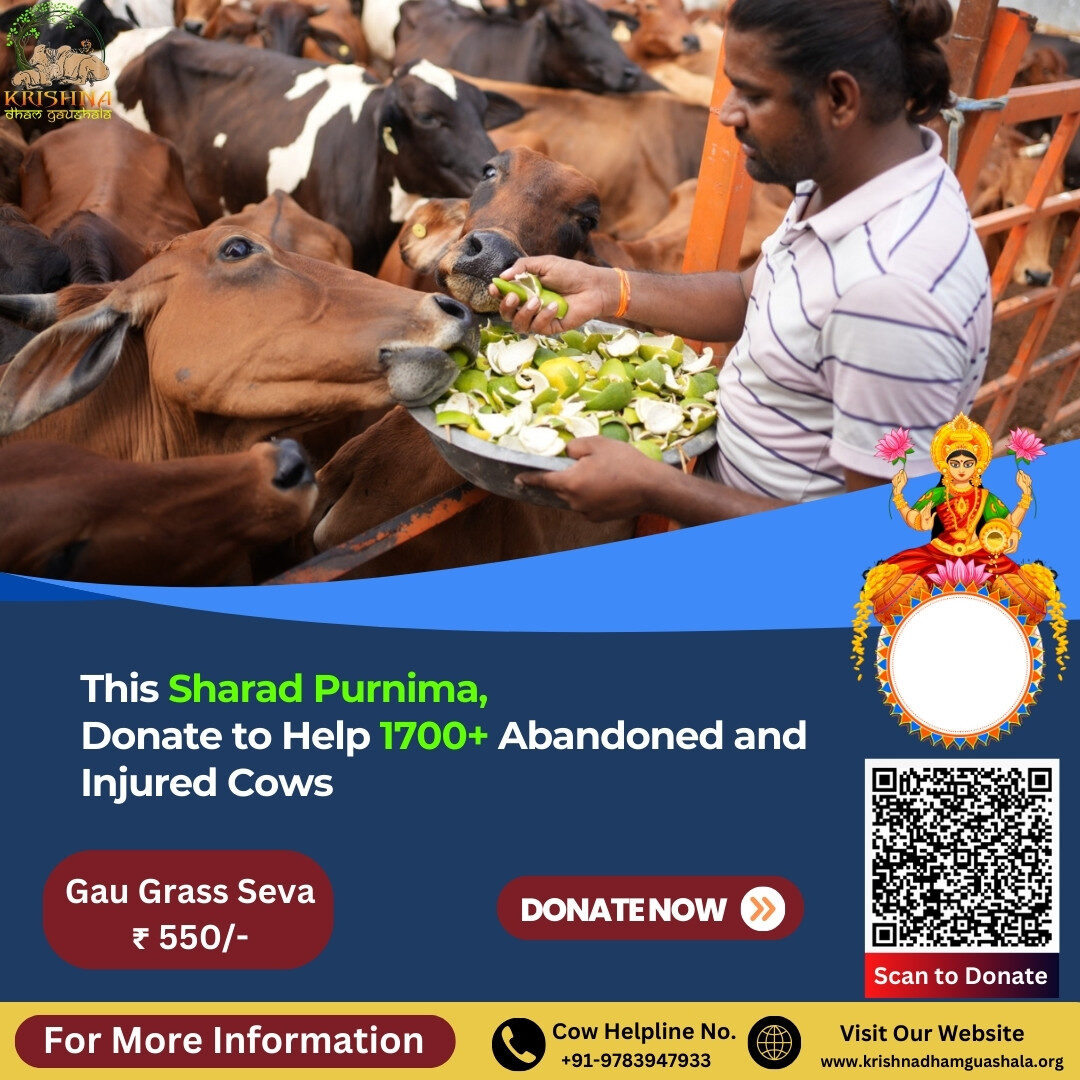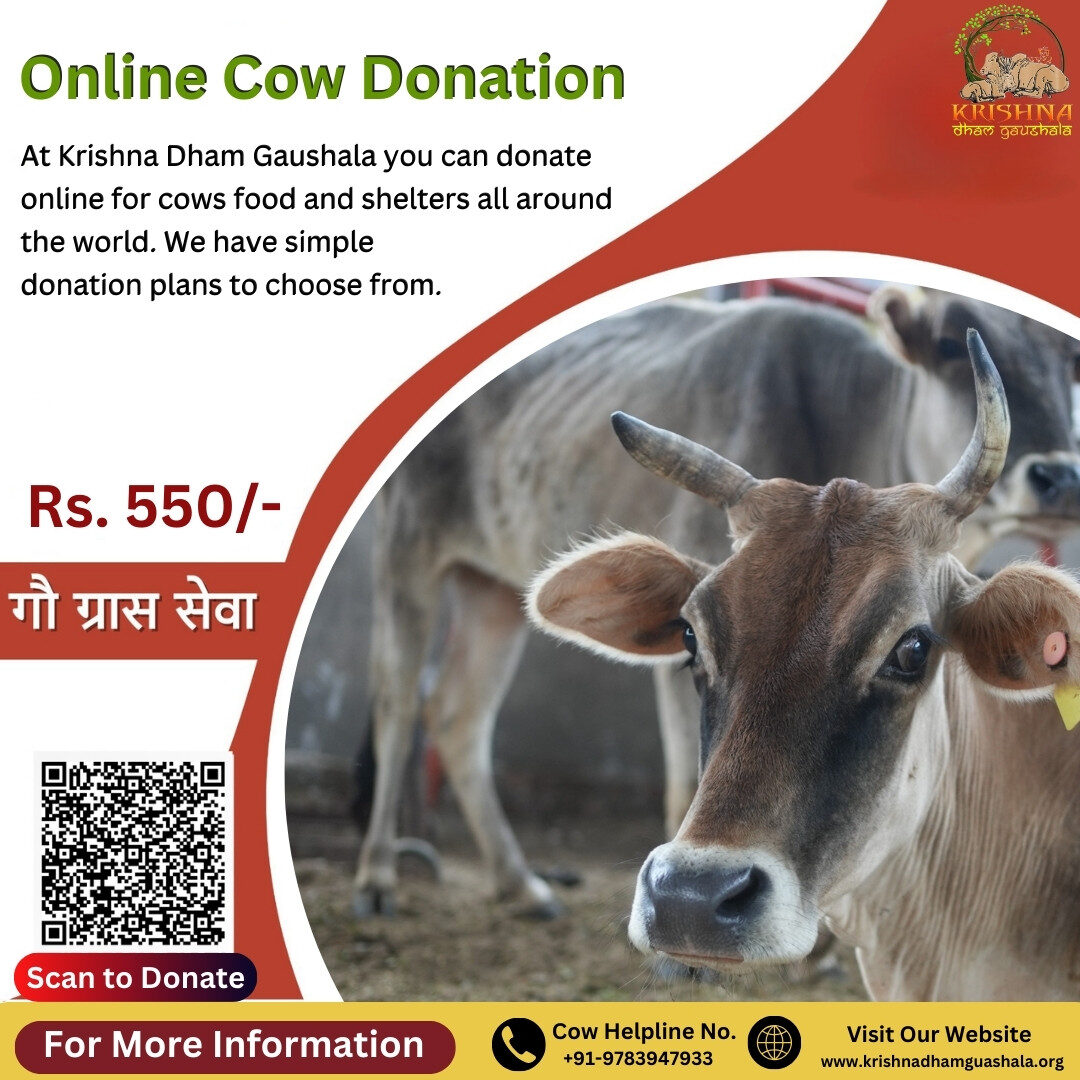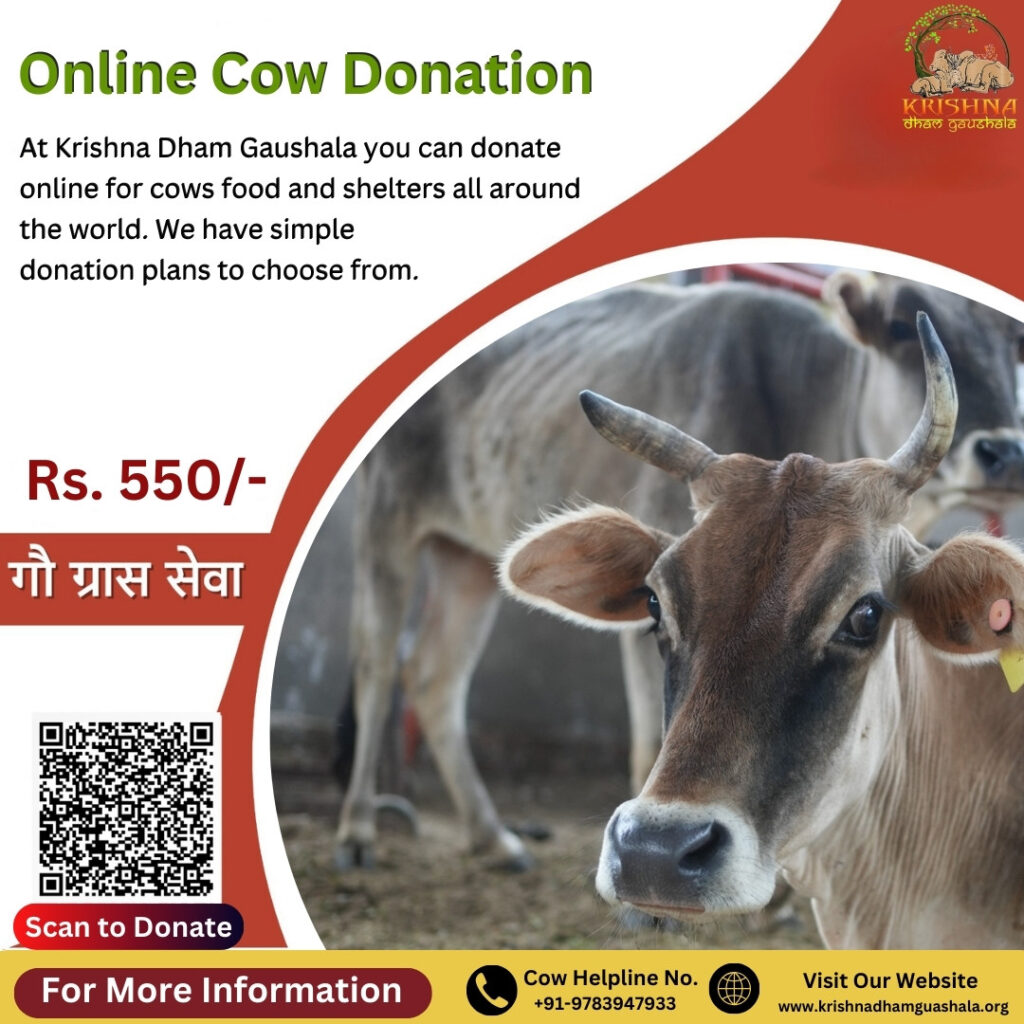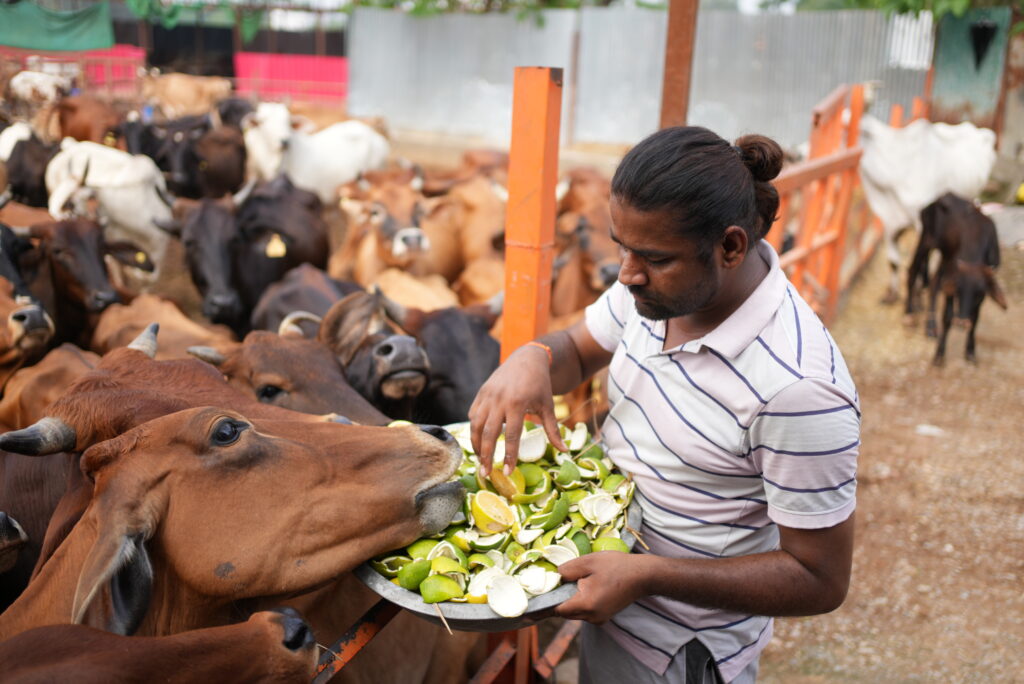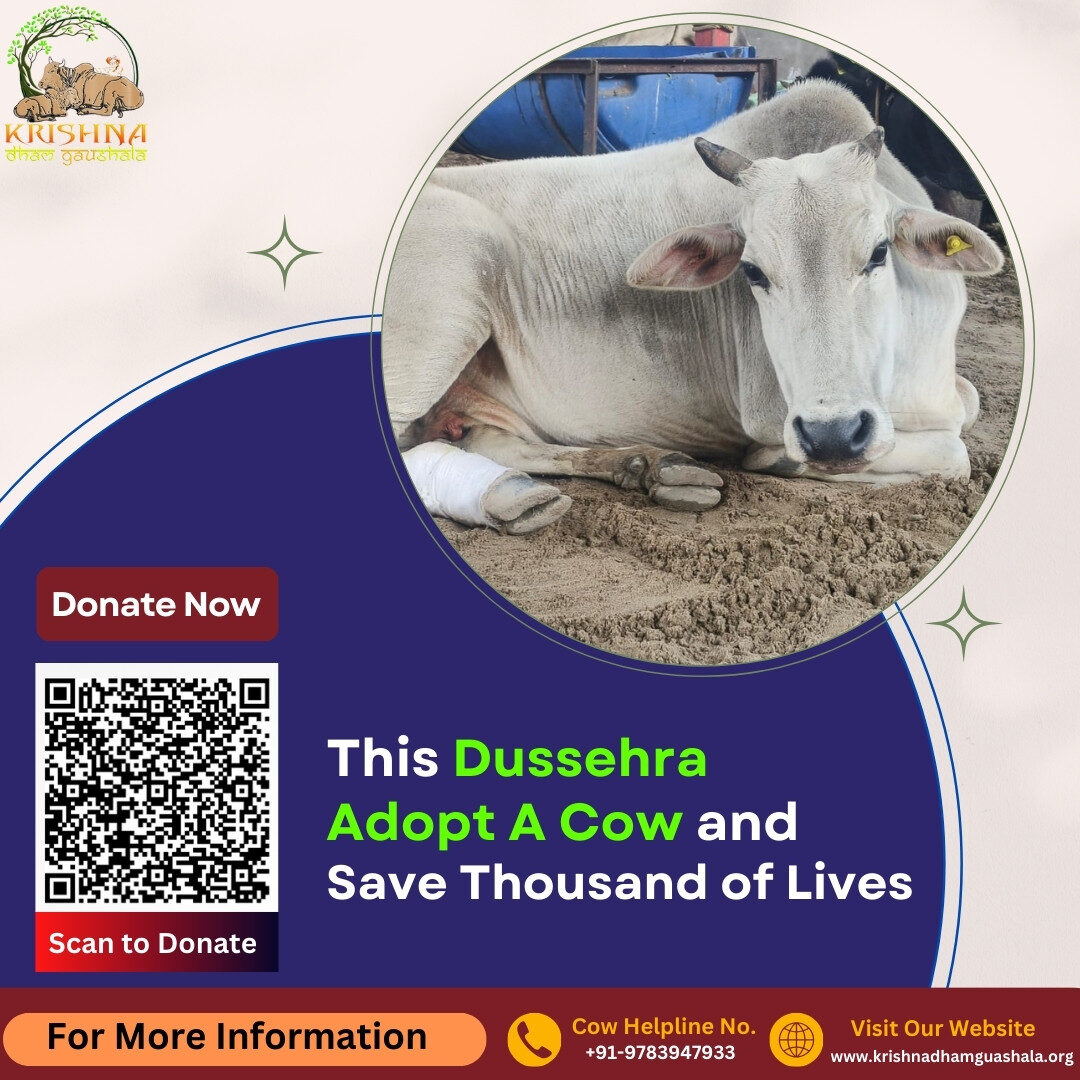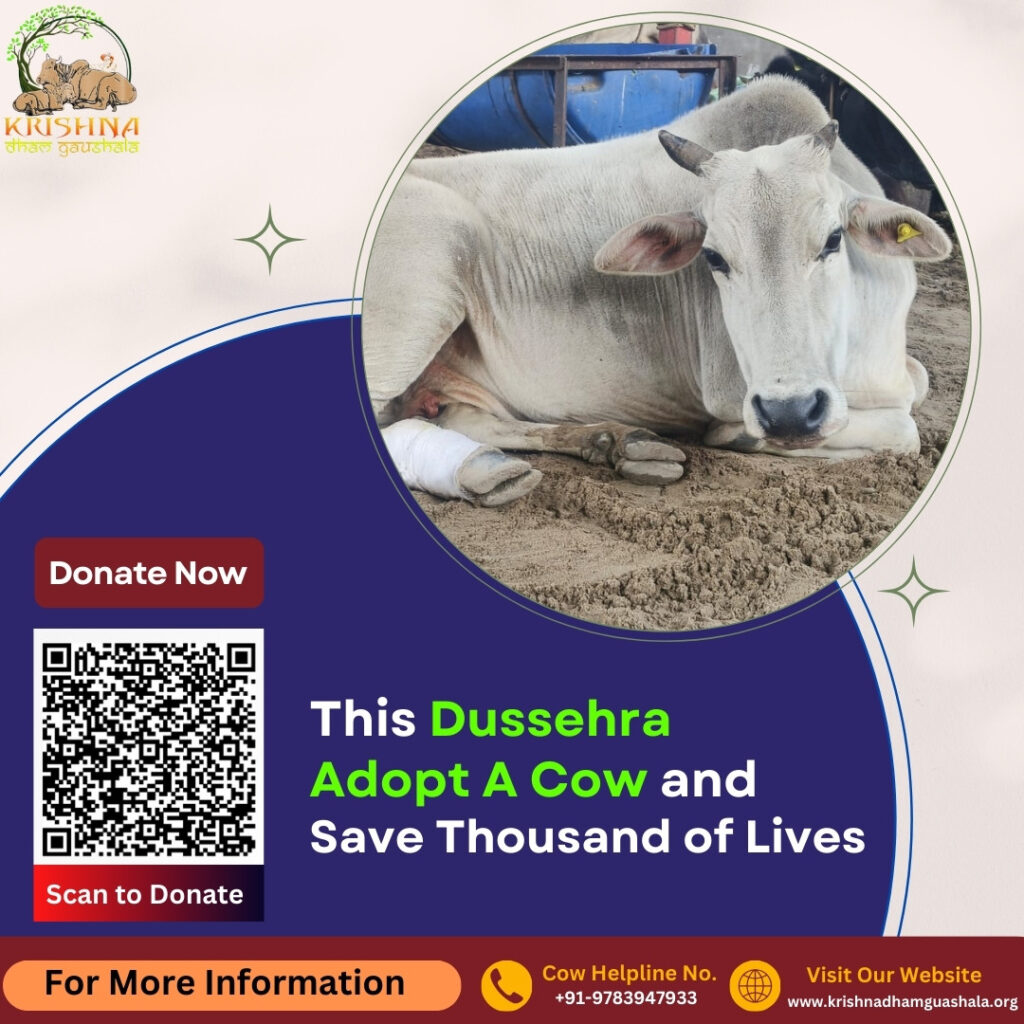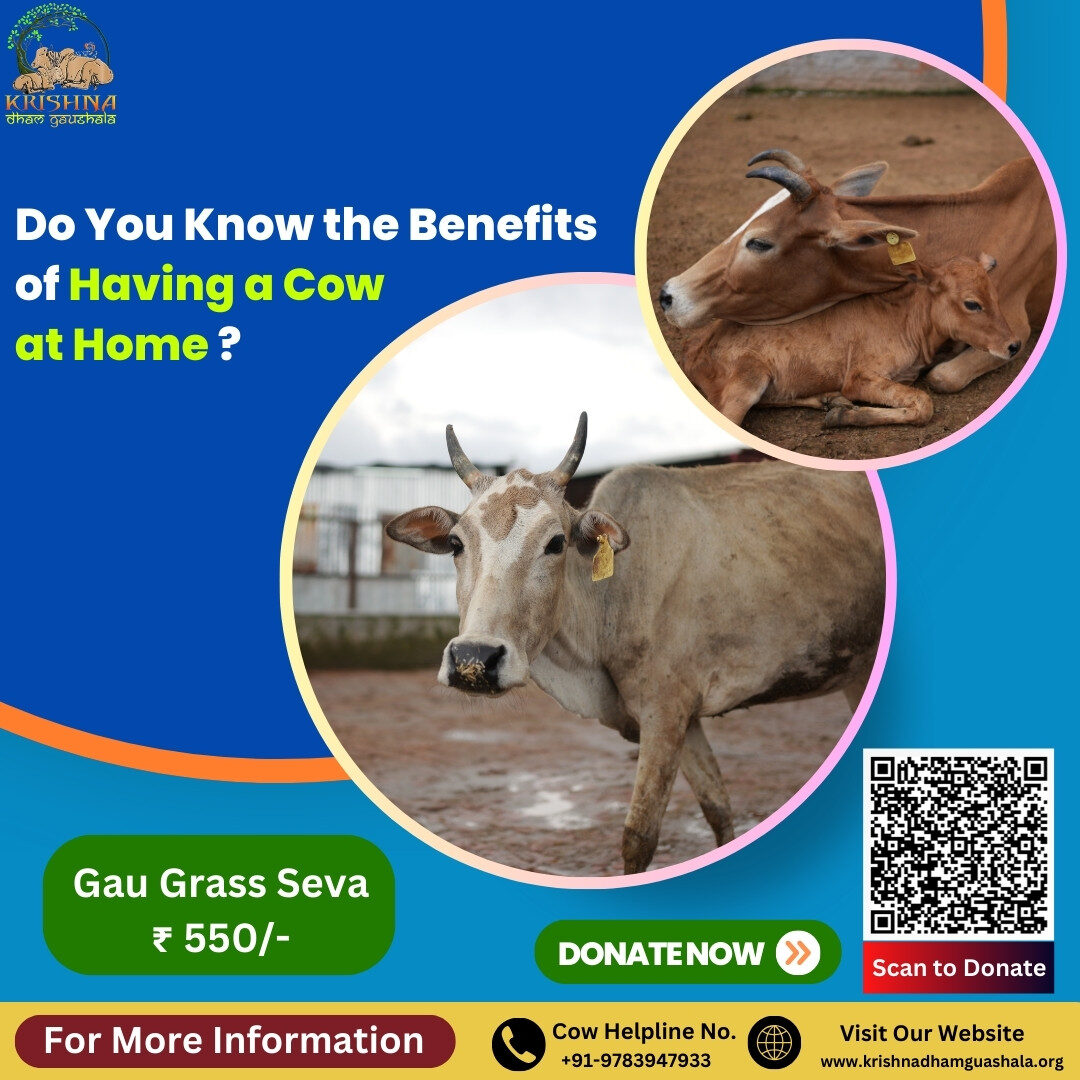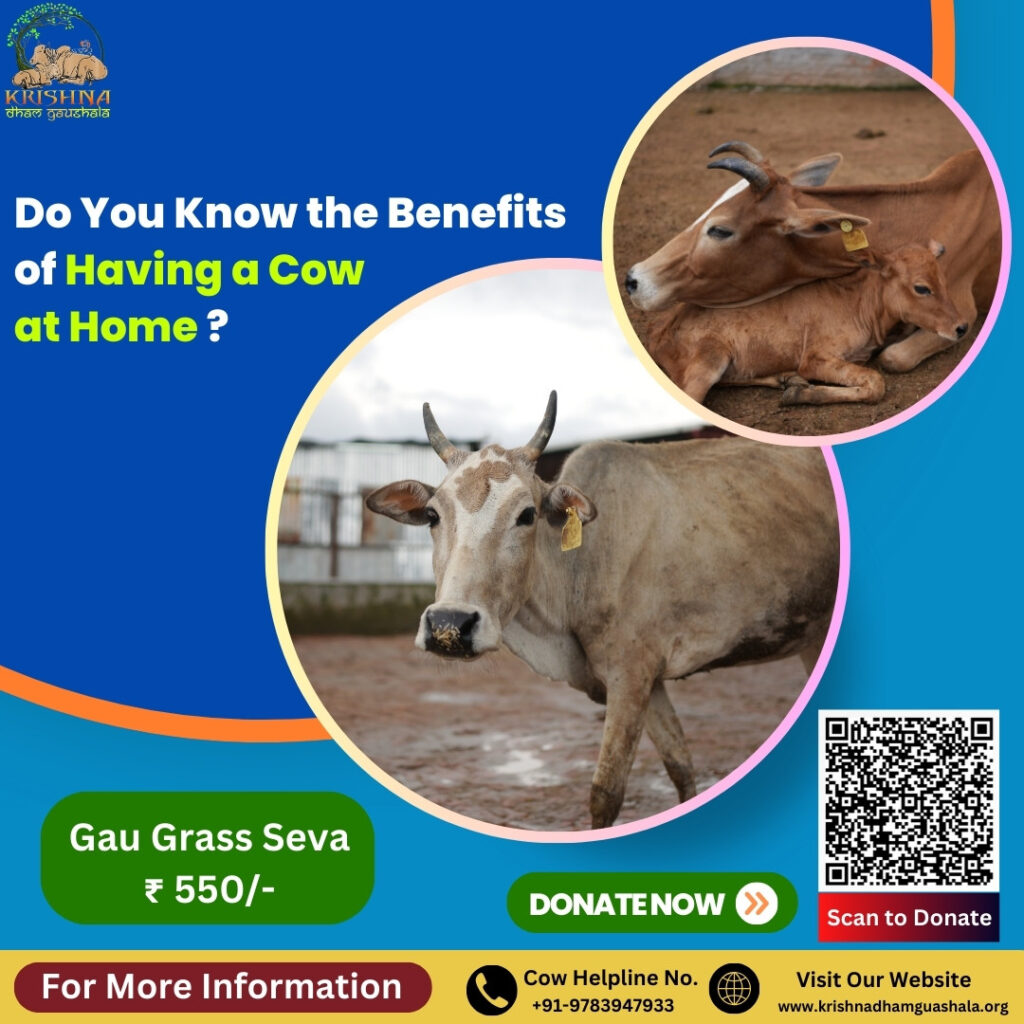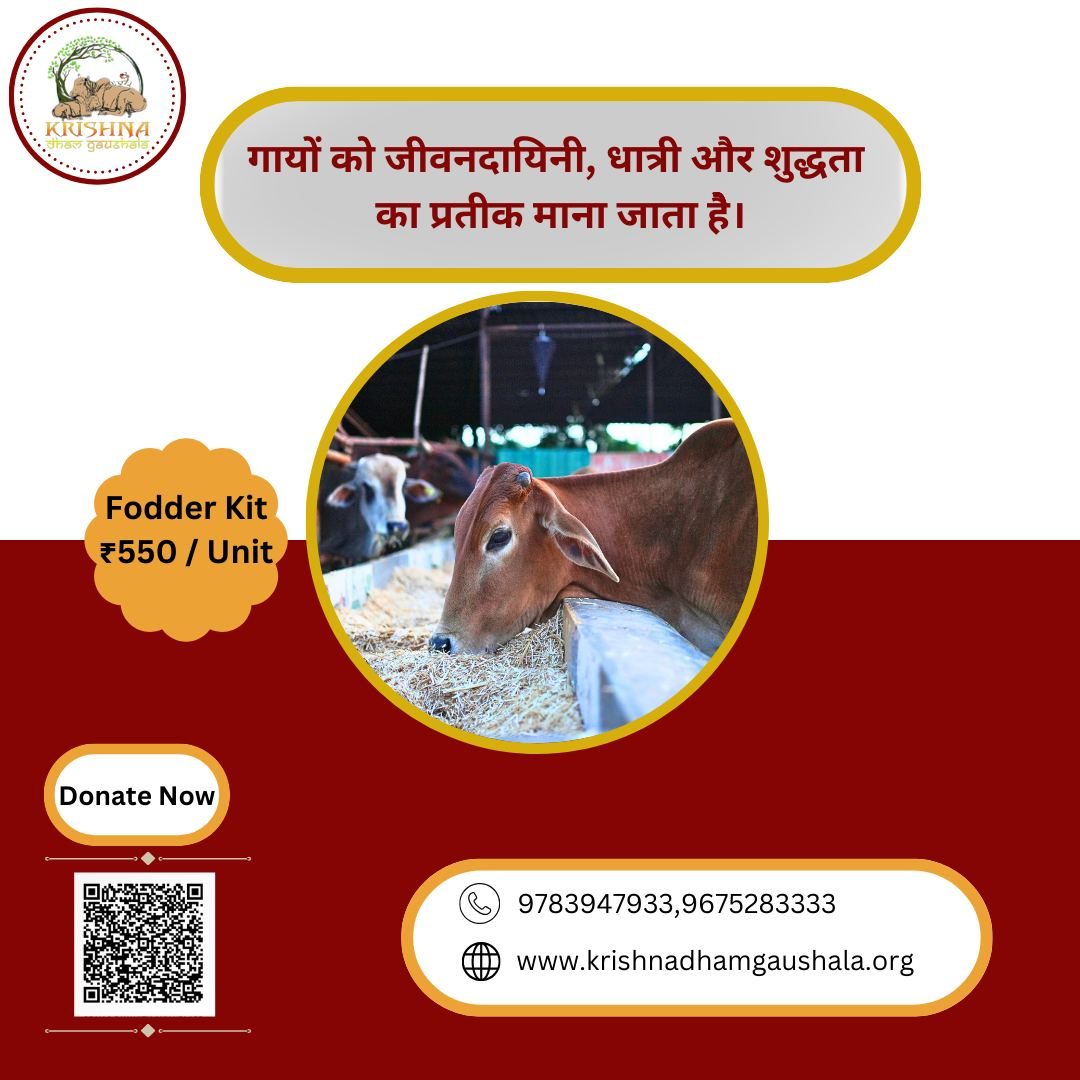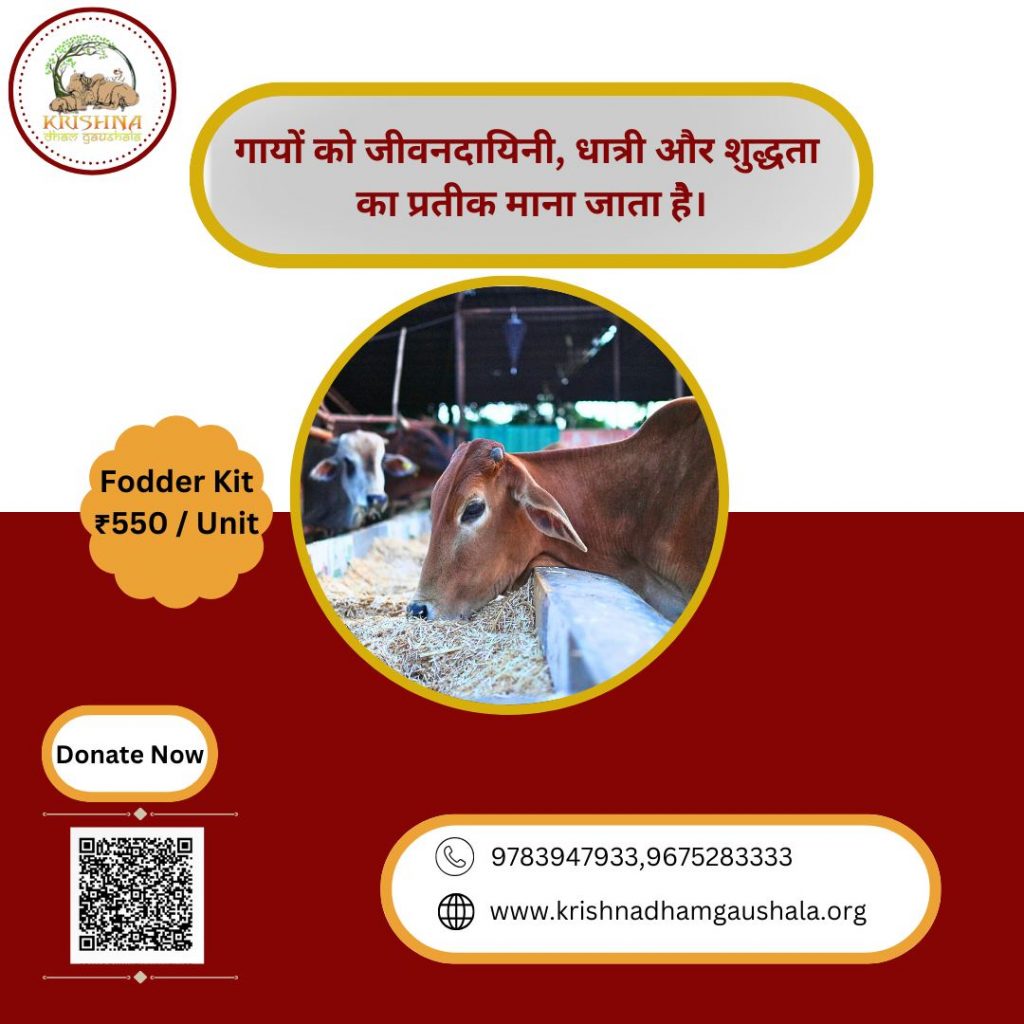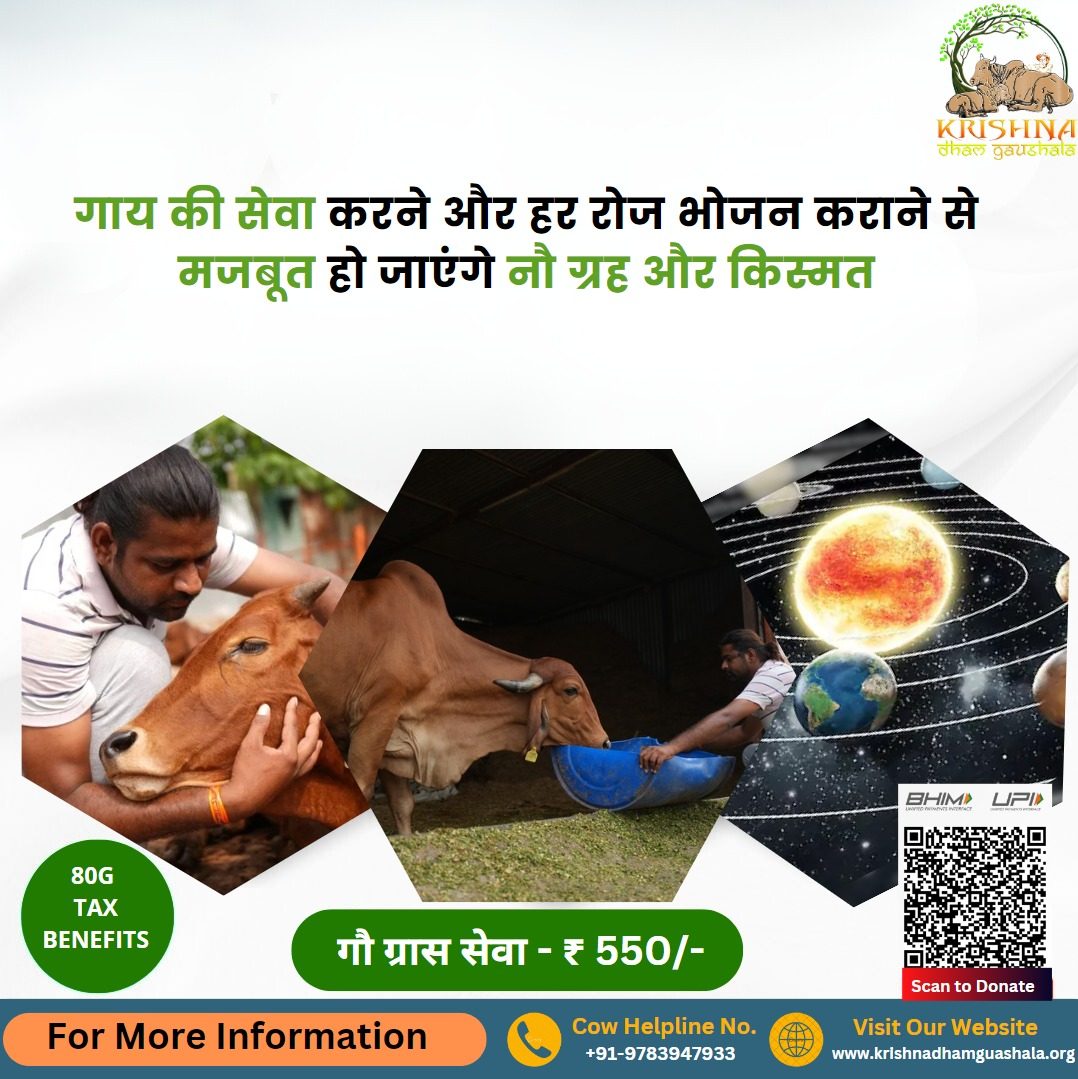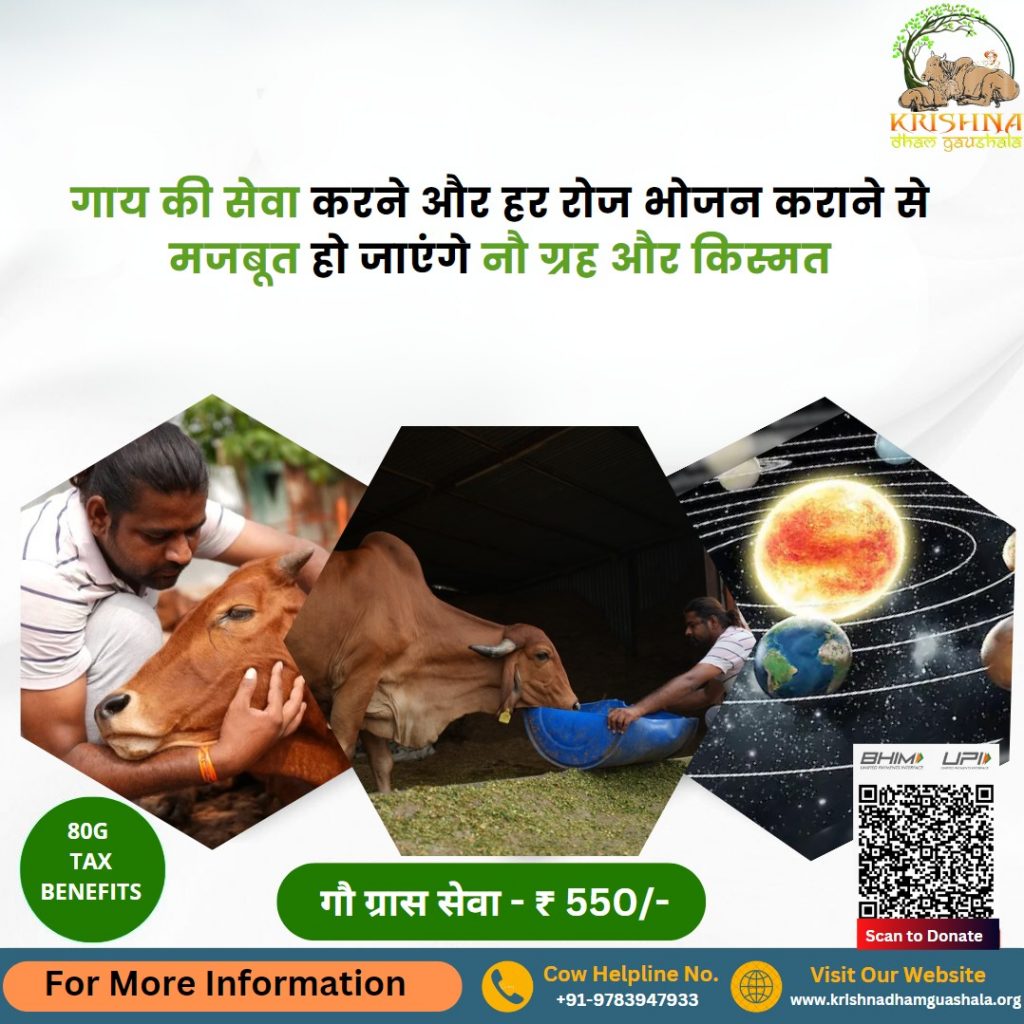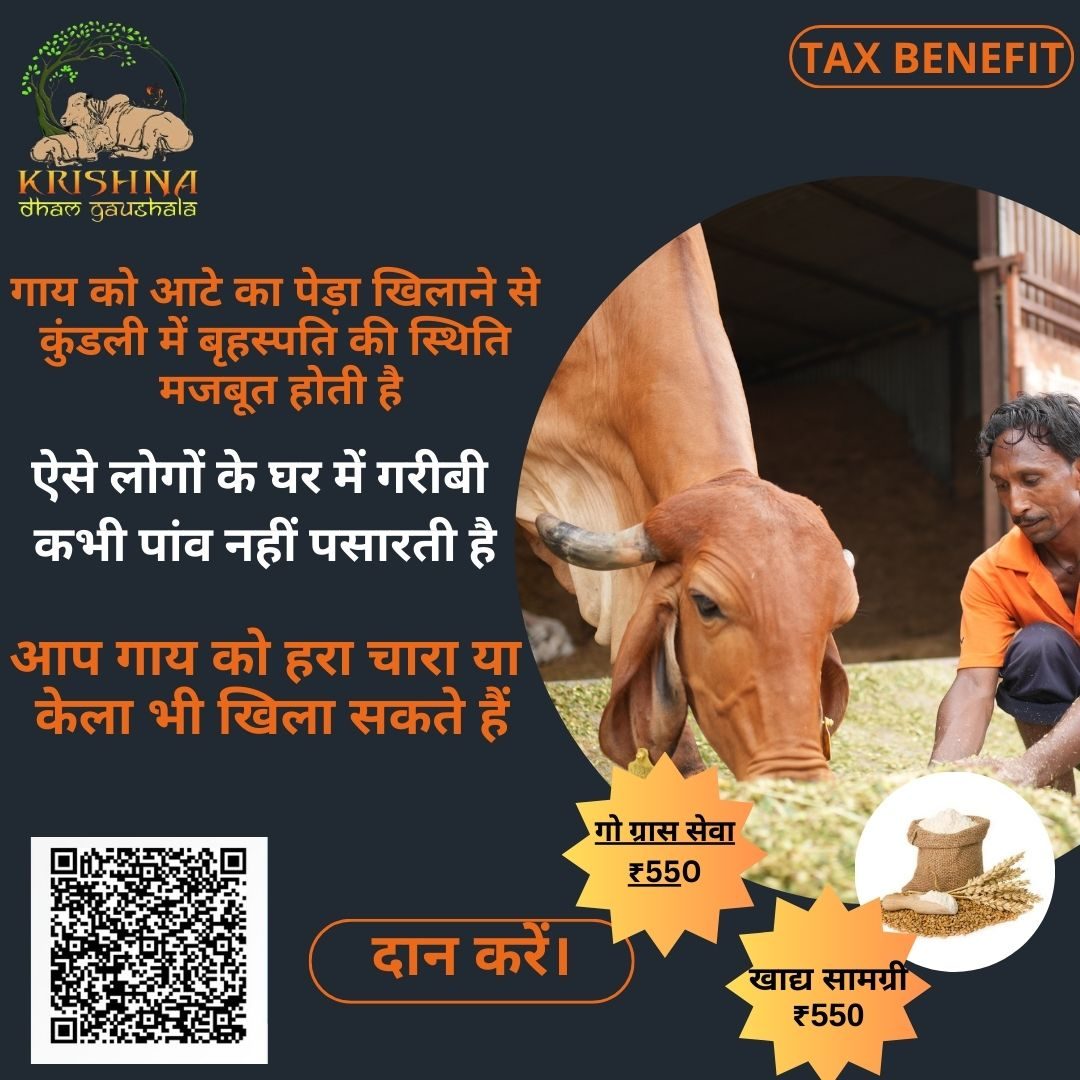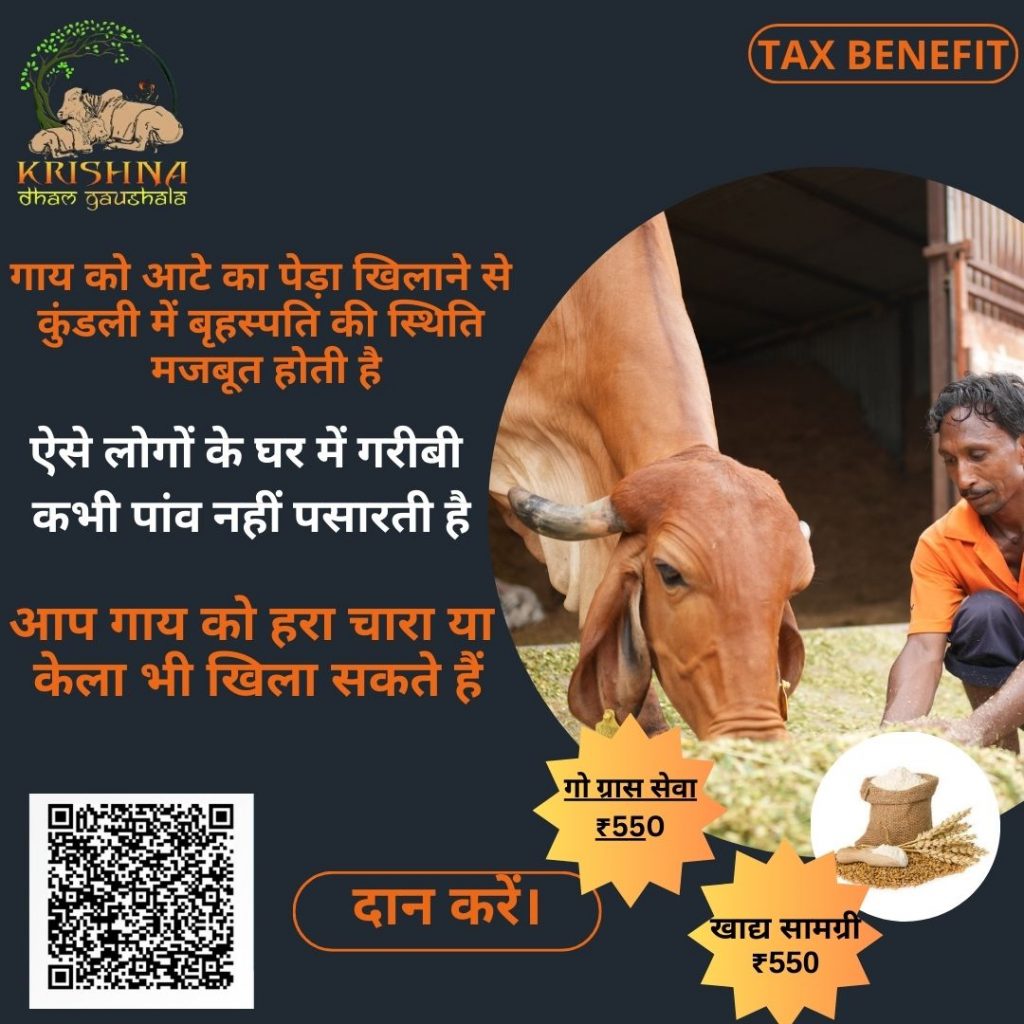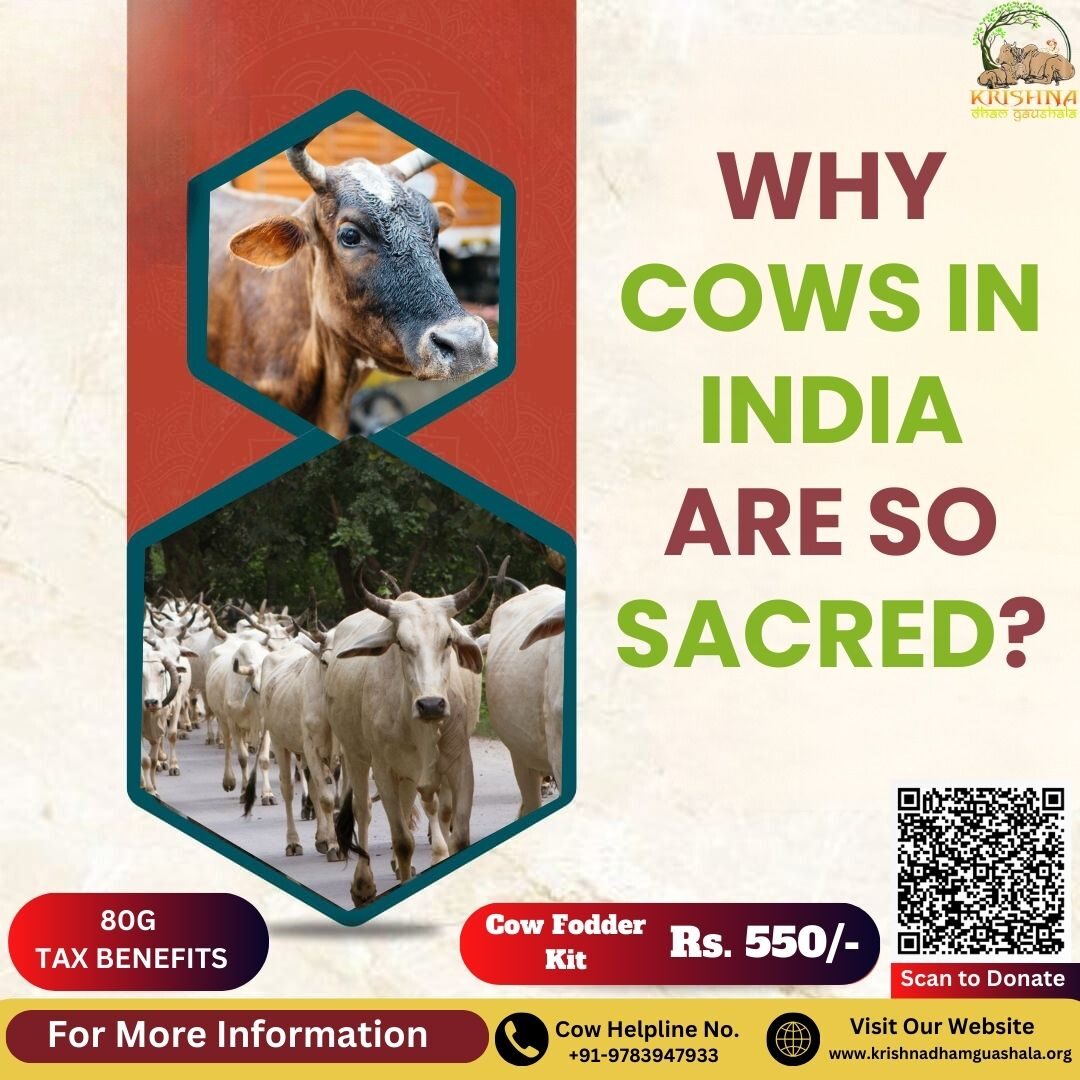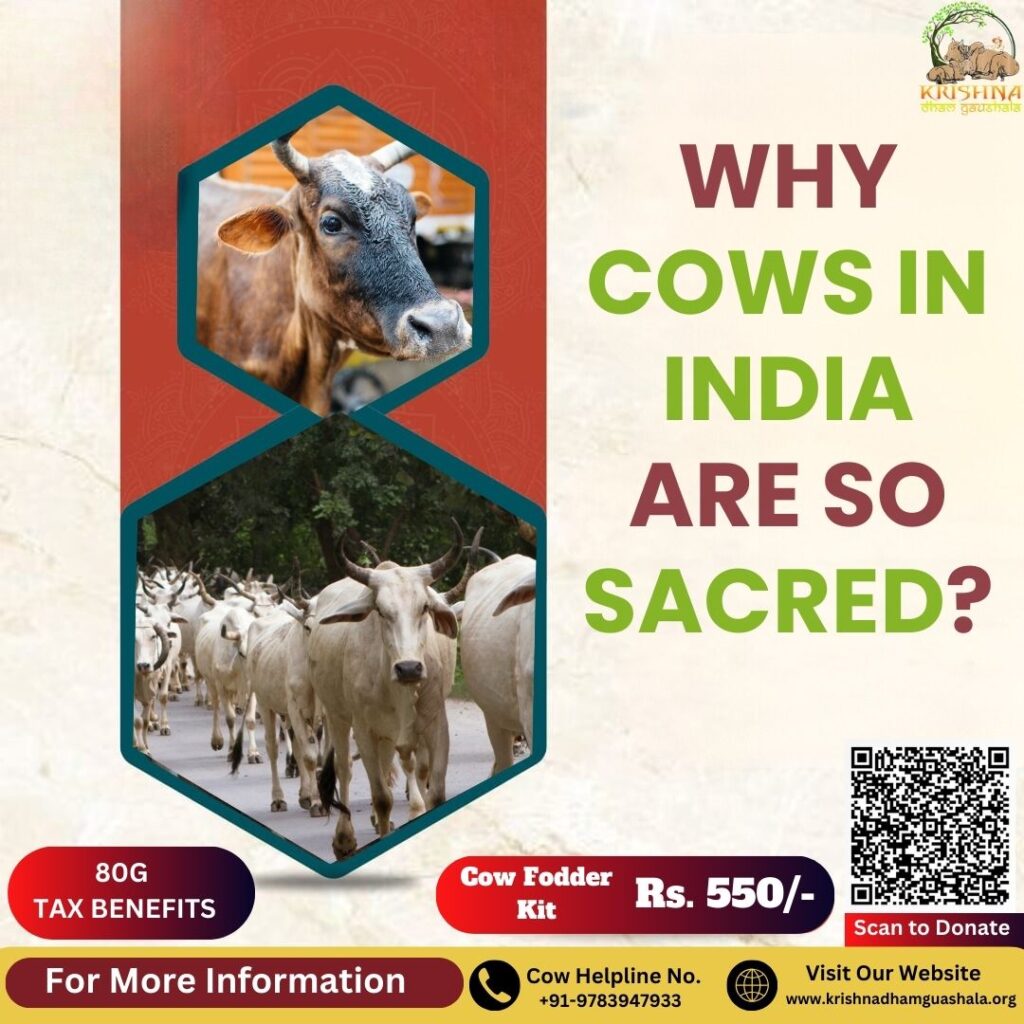Cow Donation on Sharad Purnima – Donate Money to Help Abandoned and Injured Cows
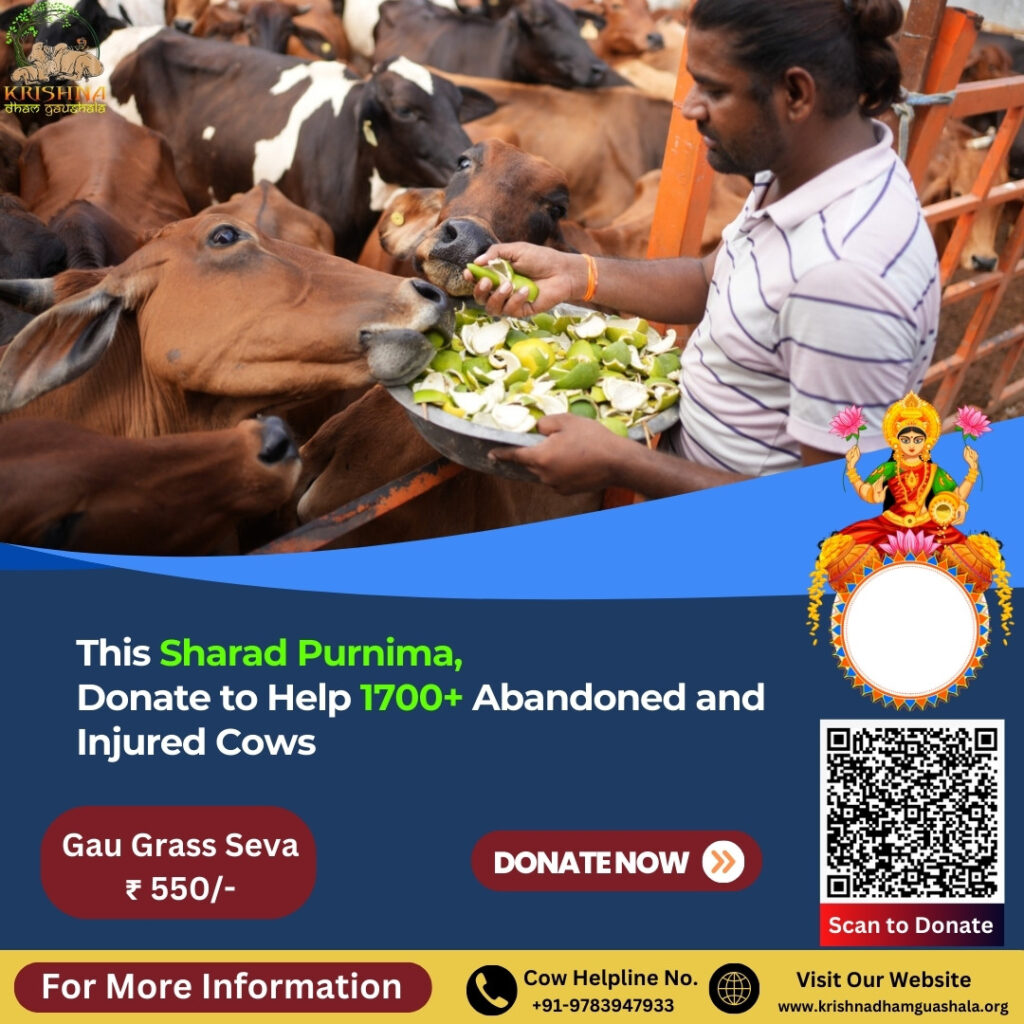
Cow Donation on Sharad Purnima
Sharad Purnima is a significant Hindu festival celebrated every year on the fifteenth day of the waxing moon (Shukla Paksha) in the month of Ashwin. According to religious beliefs, this day is dedicated to the special worship of Lord Vishnu and Goddess Lakshmi. It marks an important time of the year when the moon is at its brightest, showcasing all 16 of its phases (kalaas). The clear and bright sky on this day symbolizes the end of the monsoon season and is considered an auspicious sign.
The night of Sharad Purnima holds particular importance because it is believed that the moon’s rays on this day have medicinal qualities. Many people prepare a special dish called kheer (a rice pudding) and place it under the open sky, allowing the moon’s rays to bless it with healing properties. The next day, this kheer is consumed as prasadam (offering) and is thought to be beneficial for health.
1. The Significance of Sharad Purnima
Sharad Purnima is considered an extremely auspicious day for performing prayers, fasting, and charity. Worshiping Lord Vishnu and Goddess Lakshmi on this day is said to bring wealth, happiness, and prosperity to one’s life. Charity given on this day is believed to yield special rewards. One of the most meritorious acts is serving cows or donating to support them.
In Sanatan tradition, donating a cow or serving cows is considered highly beneficial. Cows are revered as Gau Mata (Mother Cow) because they not only provide us with milk but their entire existence is dedicated to the welfare of humanity. Therefore, the act of cow donation or service during Sharad Purnima becomes even more significant.
2. Benefits of Cow Service – Health and Prosperity
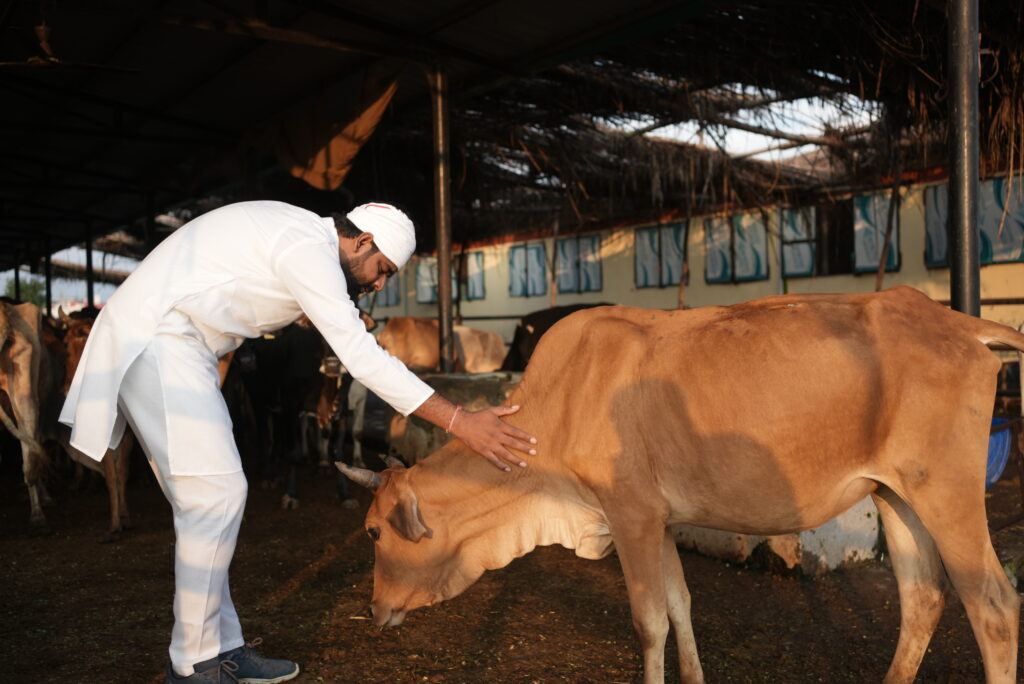
Serving cows brings not only religious benefits but also opens the path to health and prosperity. Ancient scriptures mention that serving cows helps people overcome physical and mental ailments. Additionally, it is regarded as a way to bring wealth and abundance into one’s life. Offering service to cows on Sharad Purnima invites the special blessings of Goddess Lakshmi, It is believed to remove financial difficulties and fill your life with peace and prosperity.
3. The Importance of Cow Service on Sharad Purnima
On the sacred night of Sharad Purnima, serving cows is considered extremely meritorious. Offering cows fresh green grass, jaggery, and other nutritious food brings joy, peace, and prosperity into one’s life. It is an opportunity to give back, not only for personal benefit but also for the welfare of society.
In today’s world, where many cows wander the streets hungry and helpless, serving them becomes a moral duty. Organizations like Doon Animal Welfare are doing remarkable work in this direction. They care for cows that are sick, injured, or abandoned and need our help the most. On this auspicious occasion of Sharad Purnima, you too can contribute to this noble cause.
4. Support Krishna Dham Gaushala
Krishna Dham Gaushala is another dedicated organization that provides food, shelter, and medical services to stray and injured cows. Their mission is to care for cows that have been abandoned on the streets or injured in accidents. This Sharad Purnima, you can join hands with this organization and contribute to the sacred cause of cow service.
Even a small contribution from your side can make a big difference in the life of a helpless cow. The donations you make will go towards providing food, medical treatment, and shelter to cows in need. By supporting Krishna Dham Gaushala, you become part of a noble mission and can earn divine blessings on this sacred day.
5. How to Donate?
Contributing to cow service has never been easier. You can donate online through the Krishna Dham Gaushala website. Every small or large donation you make will help cows who need it the most. This Sharad Purnima, help give these cows a new lease on life through your kind donation.
👉 Click to donate on Sharad Purnima
Sharad Purnima is a reminder that even a small act of kindness can bring a big change in the life of a helpless being. So, take this opportunity to serve cows on this sacred day and become a part of this virtuous act.
By celebrating Sharad Purnima with cow donation, you not only follow a sacred tradition but also contribute to the well-being of animals that rely on our compassion. On this auspicious day, give back to nature by taking care of cows, feeding them, and helping them thrive. Your contribution to cow service can make a lasting impact.
Also check out our YouTube Channel

